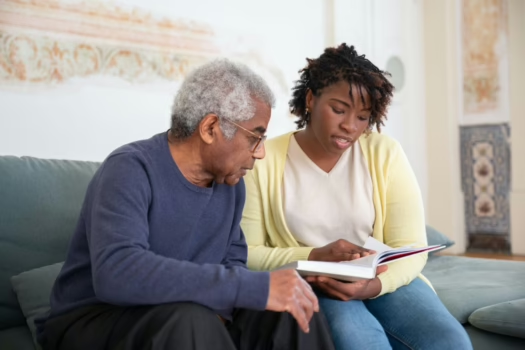Veterans entering civilian life may find it hard at first, but they eventually go around the challenges and embrace a new chapter. On the other hand, some still carry with them the emotional scars of their time in the military even as they enter their twilight years. This will only amplify the hardship of transitioning to elderly life, prompting interventions from immediate family members.
Caring for an elderly veteran in the family presents a wide array of challenges that you, as a family member, will have to deal with. Supporting them takes more than just remembering their medication schedules and taking them on regular visits to the park.
Much of the more difficult work lies in helping them in their struggles with loneliness, guilt, and other feelings that can only worsen their mental state as they age. If you’re going to step in as their immediate carer, then it pays to follow this essential guide on how to do it the right way.
Learn About Their Most Critical Needs
You can’t deliver quality care if you don’t have the resources needed to do so. This means collaborating directly with your loved one’s primary healthcare provider, and ensuring that your responsibilities are well-defined. Pay attention to common issues and conditions that may have developed starting from the time they served.
An elderly relative who has had PTSD is not only struggling with one condition. In more severe cases, it’s a confluence of conditions that are worsening their situation, making it hard for them to adjust to retirement as they still have to carry the burdens they took during active duty. Amplifying these conditions are injuries that could lead to a lifetime of chronic pain and, in some cases, the inability to hear well. You will need to consider all of these factors together so you can come up with an organized plan for managing their daily life.
Be Aware of the Benefits They’re Entitled To
Veterans who have reached their senior years have a lot to gain from the government for the years of service they have contributed. As their immediate carer, it matters to check veterans’ programs and guide them towards the benefits they may qualify for. There are payouts your relative shouldn’t overlook, especially if they happen to have been exposed to asbestos during their time in the service.
Filing for mesothelioma VA disability claims would be the best step forward if your relative’s disability is tied to their exposure to asbestos. Apart from these claims, you can also have them apply for affordable home loans if they prefer to invest in a home where they can spend the rest of their retirement.
Offer Emotional and Social Support
Helping an elderly relative goes beyond helping them recover what they are owed. More than their pension and other benefits, your presence can help bolster their mood and improve their quality of life. You just have to be present and willing to provide emotional support, not just when they need it, but throughout every day. Keep in mind that older adults aged 60 and above are more prone to depression.
The risk could get even higher among veterans who have gone through major combat situations, which can also increase their suicide risk, according to the American Psychiatric Association. Reach out to your loved one and encourage them to clear their minds of negative thoughts. You can get them to explore a new hobby or provide them with opportunities to reconnect with other family members and, most especially, fellow ex-service members.
Endnote
An elderly loved one who has gone through so much during their time in the military deserves love and attention. Helping them feel less alone can set them up for a civilian life well-lived.
Follow me down the rabbit hole!
I'm Alice and I live with a dizzying assortment of invisible disabilities, including ADHD and fibromyalgia. I write to raise awareness and end the stigma surrounding mental and chronic illnesses of all kinds.








